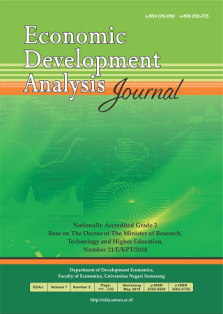Are Geopolitical, Economy, and Social Affecting Unemployments? Evidence From ASEAN-5
Abstract
East and Southeast Asia gain tremendous economic and political advantages in terms of economic geopolitics (GPE). However, the impact that emerged in the GPE was further exacerbated by the emergence of the covid pandemic, "one belt, one road" in the global economic and geopolitical recession, which caused figures to soar in several ASEAN countries which is one of the challenges related to economic development. This study used the Vector Error Correction Model (VECM) based on de jure an d de facto KOFGI panel data in ASEAN-5 from 1991-2019 to explore the short and long-term relationship between geopolitical, economic, and social factors on the unemployment rate. The results of this study reveal that the four variables have two co-integration relationships: especially in the long term, economic factors harm the unemployment, meanwhile, social and political factors have not provided a conducive influence to maintain the unemployment impact, and they promote no mutual mechanism benefit. The findings also show a negative correlation between political factors and an increase in de facto unemployment. It indicates that the political environment impacts a decrease in social and economic variables. Furthermore, the shock of the loss of de jure economic stability has adverse social and political interactions, thereby increasing the unemployment rate. This due to the critical role of economic stability to reduce the unemployment in ASEAN-5 countries.


